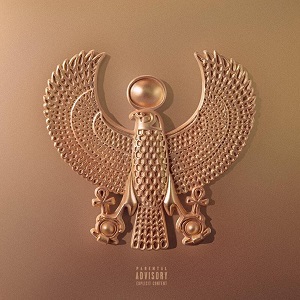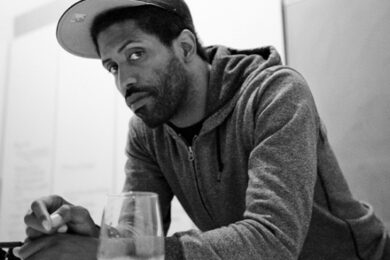The Wu is dead. While the precise moment of the acclaimed Staten Island rap group’s death is unclear, it assuredly took place after the release of 2001’s Iron Flag. No matter how many times RZA rallies the exponentially more reluctant and cantankerous troops to re-enlist, the unit resembles little more than a shuffling horde, mimicking solidarity and feigning comradery. No media blitz, brand extension, or shock treatment can revive a rotting carcass. Unremarkable Wu-Tang Clan reunion records 8 Diagrams and last year’s A Better Tomorrow prove that not only had the zombieism set in, but it had become acute and, as we’ve subsequently seen, viral.
More than two decades removed from Enter The Wu-Tang (36 Chambers), their signature Shaolin style continues to be bitten again and again in a ceaseless and senseless hip hop bloodfeast. Scores of braindead producers and flowjackers cobble together musty loops and yellowing notebook rhymes, all thinking they’re carrying on or bringing back real hip hop. The world passes them by as they’re left to wonder why they’re stuck playing to 30 people on a Thursday night in some crumbling rec center while some Maybach Music signee makes a few easy bands off an appearance fee at the strip club a half a mile down the road.
Even when done well, as Estee Nack and his Tragic Allies beatsmith Purpose do on 14 Forms: The Book Of Estee Nack, a stagnant familiarity lingers. With ‘T.I.M.E.’ in place of ‘C.R.E.A.M.,’ you can envision the Massachusetts lyricist pointing perpetually at his temple as the piano plays. Logic both streetwise and and social drench Nack’s verses, though it’s his less serious stuff that sells, like the unapologetic Latina thirst on ‘Brown Fly.’ Though Purpose culls his samples for these RZA remnant rhythms from more current cinematic sources than the Wu captain did, he samples extensively nonetheless (‘Churches, Music & Politics’). And while ‘Incriminating Thoughts’ incidentally reveals at least some of these tracks date back to 2013, the mostly good material here couldn’t be more frozen in amber.
Even Ghostface Killah himself can’t help but revisit the past, if only to try and revise it. Reteaming with the formidable Adrian Younge, his Twelve Reasons To Die II extends the aesthetic and the spaghetti revenge narrative of the prior volume, which not coincidentally was his best-received record in awhile. As before, Younge provides overwrought organic atmospheres and RZA returns as the saga’s infrequent narrator. Yet the inclusion of Raekwon on several tracks nudges the record closer to the throwback Stapleton sound (‘Blackout,’ ‘Return Of The Savage’), which probably explains its appeal to aging hip hop heads. Of course, now we’ve stumbled upon the problem at hand, where Ghost must perform his undead acrobatics in markdown Wu Wear, ironically told from the perspective of a murdered mafia enforcer seeking justice from beyond the grave. When he affixes an updated ‘Torture Skit’ to the start of ‘Death’s Invitation,’ it comes off as kitsch.
Meek Mill – Dreams Worth More Than Money

It’s almost unfair for Meek Mill to have to live up to the expectations set by the exalted Dreams And Nightmares. For his grand return, the Philadelphia rapper remains unpretentiously lyrical, his potent flow never wasted on killer beats by the likes of Cardo And Metro Boomin. Thoroughly modern, Meek Mill sounds as fresh as ever here, trading bars with Future on ‘Jump Out The Face’ and wingmanning with The Weeknd on ‘Pullin Up.’ A duo of romantic songs, both with Nicki Minaj, aim straight for the pop charts. Still, the shameless triumphalism of ‘The Trillest’ would make a lot more sense if this album happened to have a rap single as stellar as ‘Amen’. More Addams Family than Kirk Franklin, ‘R.I.C.O.’ brings Drake back for a weird little ditty. Despite a general lack of cohesion, the album’s strength is that it often doesn’t sound much like a Maybach Music album. We don’t even hear that infamous drop until Rozay’s sole appearance on late album lumberer ‘Been That.’
Murs – Have A Nice Life

The undisputed champion of the Def Jux legacy is clearly El-P, thanks to the critical winning streak he’s ridden since Cancer 4 Cure. That said, Murs deserves silver consideration for his terrific run of records since that legendary label took a biodegradable dirtnap. Though not as instantly absorbing as his records with 9th Wonder, Have A Nice Life grows on you soon enough. Much of that has to do with Murs’ unparalleled storytelling abilities and his mastery of the rap verse (‘Anyways,’ Okey Dog’). An obvious candidate for a single, were radio at all interested in indie artists, ‘No More Control’ takes a stereotype-swerving snapshot of ghetto life. Though Murs never claimed to be a drug dealer or gang member, he’s nonetheless affected by his surroundings. A harrowing pair, ‘Woke Up Dead’ and the subsequent ‘PTSD’ echo what Pharoahe Monch excruciatingly detailed on his last LP. His verses are an alarming set of allusions that further detail the ingrained racist brutality thrust upon Black America daily.
Quelle Chris – Innocent Country

Neither best known or most heralded on his label or in his city, this Detroit native has resided in the Mello Music margins long enough. A quixotic excursion peppered with occasional diversions, Innocent Country takes an abbreviated award tour through uncommon rhymes and eclectic beats. While it’s hard to compare what Quelle Chris does to any of his neighbours – be that punchline comic Big Sean or Guilty Simpson – it’s clear what Apollo Brown sees in him. With producer Chris Keys behind the proverbial soundboard, the rapper does solid rhyme work imbued with humour and hustle. When he’s not cosplaying Phantom Of The Opera silliness (‘Madness In The Oasis’), he’s firing existential knowledge darts at an even more confused Creator (‘I Asked God’). On the disorienting ‘Drugfest TooThousandToo,’ he mocks the laziest aspects of call-and-response culture. Denmark Vessey chimes in on a couple of tracks, including the Birdman handrub-referencing highlight ‘The Plan.’ But above all Quelle Chris entertains, and that’s what makes his eccentric approach pay off.
Vince Staples – Summertime ‘06

Following some excellent tapes and features, this promising Long Beach native’s double-disc debut album drops with a bang. With No I.D. as executive producer, Summertime ‘06 supplies an updated soundtrack to the city repped by rappers like Crooked I, Daz Dillinger, and Warren G (‘Norf Norf,’ ‘Street Punks’). Like those who came before him, Staples is both lover and fighter, swooning with swagger over an apple-bottomed Latina cutie on ‘Loca’. Drugs weigh heavily on the jaded young dude as he struggles through romantic and street entanglements in a country rife with racial hostility. There’s little doubt he’s made one of the year’s most earnest rap records, one loosely told as conceptual narrative but perhaps more valuable when taken from moment to honest moment. Still, amid all these graphic relatable tales of street life, the pro-life finger-wag on ‘Surf’ sounds as hollow as Staples’ bullet tips. Crooner James Fauntleroy one-ups Justin Vernon on ‘Might Be Wrong’, while Jhene Aiko makes a poor Rihanna substitute on ‘Birthday Cake’ interpolation ‘Lemme Know’.
Tyga – The Gold Album: 18th Dynasty

Spotify-first seems a foolhardy strategy for one of rap’s least wanted. Hoping to participate in the surprise album drop pyramid scheme, Kylie Jenner’s not-boyfriend premiered this, a repeatedly held back record that many hip hop fans hoped would never ever emerge. His second full-length in four months, The Gold Album lacks the YMCMB imprimatur of his prior records, an implication far greater than any verbal darts Drake might’ve thrown at Birdman on If You’re Reading This It’s Too Late. While no confirmation he’s fully out the coop, he’s abandoned last year’s promo cuts ‘Hookah’ and ‘Wait For A Minute’ for a dozen middling throwaways. A singles artist to a fault, Tyga depends heavily here on go-nowhere beats by Jess Jackson (‘Hollywood Niggaz’, ‘Muh Fuckah’), suggesting Birdman was right to shelve it. A brazen overreach, ‘Shaka Zulu’ is the most egregious Drake rip-off of the 21st century. Guests are scarce, but both Boosie and Weezy wash Tyga thoroughly as if in the waters of Lake Minnetonka.
BONUS: One Hitters:
K-Def – Tape 2 Salvaged from storage, these tight sample-based beats harken back to the New Jersey producer’s days working alongside Marley Marl on records by Lords Of The Underground and Monie Love.
Large Professor – Re:living The Queensboro hip hop legend exercises some portion control on this enjoyable set of all-new boom bap throwback rap, featuring a penultimate jam stuffed with verses by Cormega, Lord Jamar, and Sadat X, among others.
Nosaj Thing – Fated Still one of hip hop’s most interesting producers, this Los Angeleno creeps through the hallowed halls of soul afterhours for this strange and significant new album of abstract aural art.
Dizzy Wright – The Growing Process The young semi-conscious stoner reaches the embitterment stage of emceeing far too early, sounding more petulant than enlightened on this nonetheless diverting album.



